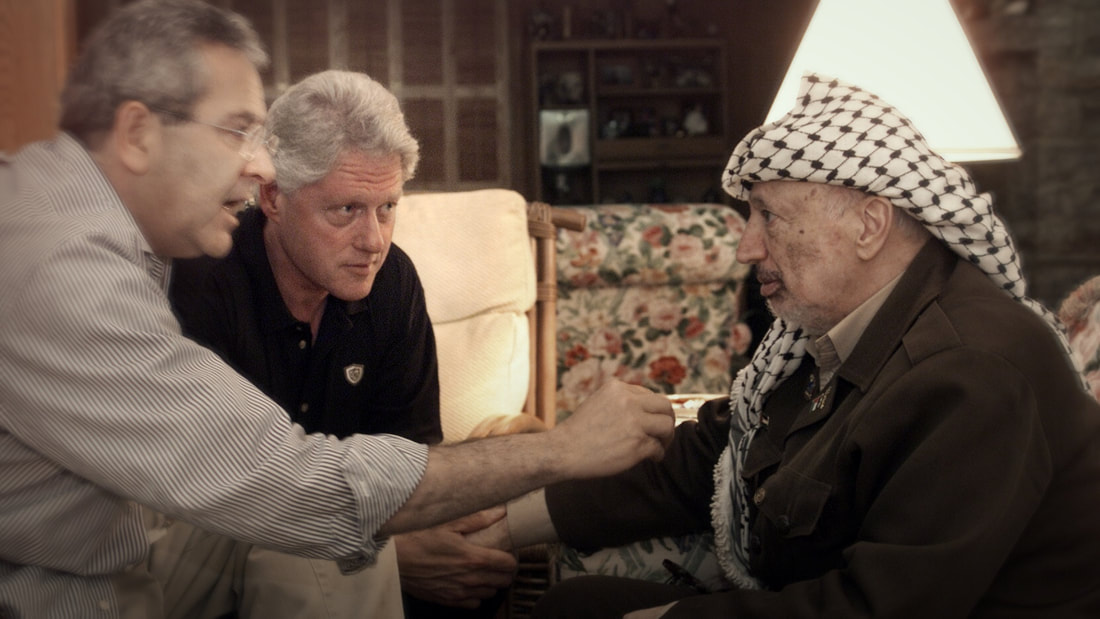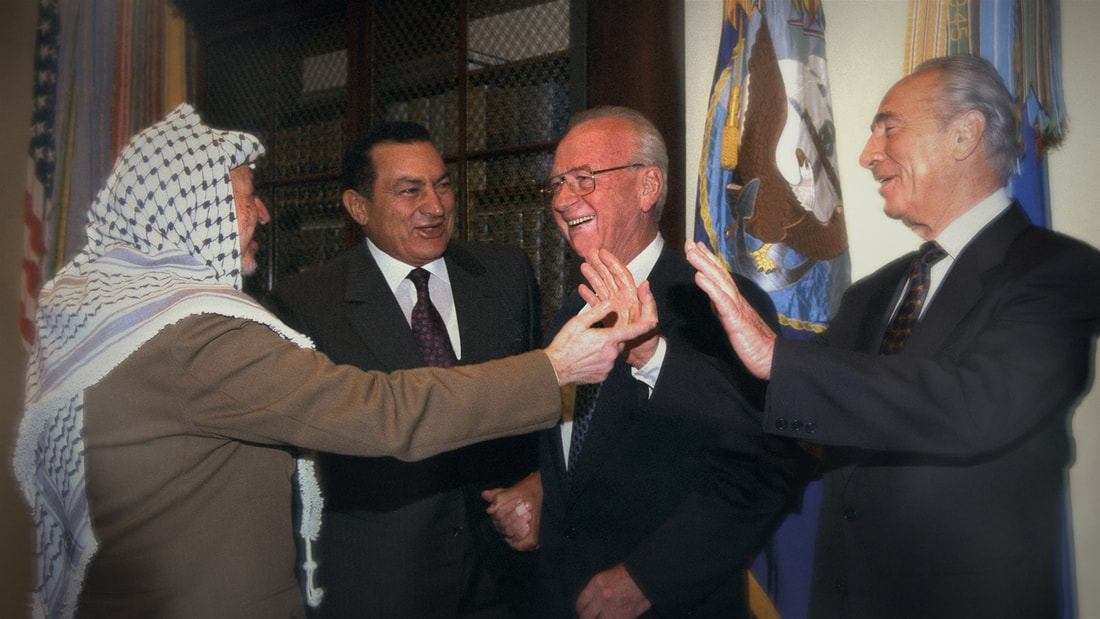|
Review by Sean Boelman
The Israel-Palestine conflict has remained a hot button issue for over half a decade at this point, hence why there have been so many documentaries about the topic. Dror Moreh’s The Human Factor tries to offer an interesting new perspective on the heart of this issue, but is so frustratingly indecisive that its good intentions are lost.
The film explores the role that the United States had in the fight to secure peace in the Middle East with an emphasis on the American mediators’ perspective. It’s a frighteningly Americentric approach to a problem that is much bigger than the land dispute that so many of these negotiators seem to think it was and is. Although the United States’ interventionist policies have been widely debated throughout history, Moreh seems to have no interest in exploring these warring viewpoints. Instead, the movie compares the presence of American mediators to that of a lawyer, a necessary component of a negotiation which they are barely qualified to resolve. Moreh’s film does say some interesting things about the fallacy that is neutrality in politics. Media coverage of summits such as these typically suggests an idyllic and open discussion, but the interviews in the movie offer a peek behind the curtain at the truth of these meetings. However, Moreh could have tied these ideas into his main thesis more effectively.
On that note, there is definitely a clear political stance taken by the film on the conflict, but that is perhaps not the most problematic thing about the movie’s approach. The overall message of the film seems to be that there is no such thing as a true compromise and that everything in politics is a lie, which seems to be a toxic perspective to be perpetuating.
That said, the movie does an excellent job of making the audience respect the major players in the negotiation. Even though the film doesn’t always paint them in the most positive light, Moreh evaluates the merits of each of the leaders’ strategies in a way that is well-argued, detailed, and surprisingly fascinating. Moreh’s movie is also very flashy in a stylistic sense, and it helps the film move along despite its challenges. Since many of these conversations occurred behind closed doors, the story is mostly relayed second-hand with archive photos making up a majority of the visual materials. Still, Moreh is able to cut these interviews in a way that has a particular energy to it. The Human Factor is certainly a solidly-crafted documentary, but its politics are distractingly inconsistent. For a movie about people trying to find peace, Moreh seems to have shockingly little faith in the process of negotiation. The Human Factor hits theaters on January 22. Rating: 3/5
0 Comments
Leave a Reply. |
Archives
July 2024
Authors
All
|
|
|
disappointment media
Dedicated to unique and diverse perspectives on cinema! |


